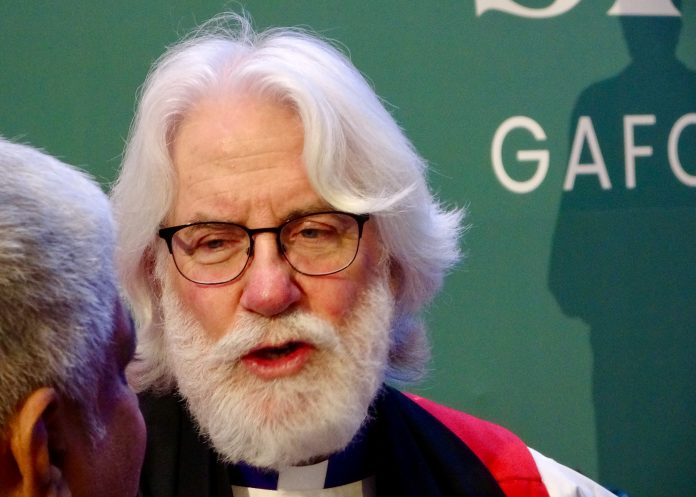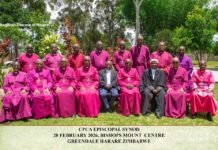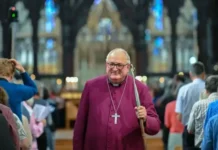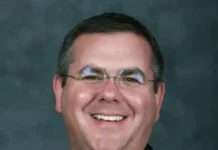Bishop of the diocese of the Arctic David Parsons has announced he will retire Dec. 31, 2024. In a career he describes as beginning with a small voice calling him to share the gospel despite his reluctance, Parsons today says his greatest highlight was meeting the people of the Arctic, whom he was called to share it with.
After a youth that included stints as a worker for Canada Post, for Canadian National Telecommunications and as a door-to-door plant salesman, Parsons began his career in the church in 1987 as a member of the Church Army (now known in Canada as Threshold Ministries), an evangelical association with Anglican roots. It was comforting, he says, to be a member of a hierarchy under the authority of a leader. Since then, Parsons has been a chaplain for seafarers, a diocesan refugee coordinator and an administrator for a hospital hostel. He describes his education as a process of learning from everyone he has known, including blue collar workers, white collar workers and through theology courses offered through professors who taught through Wycliffe College and the Church Army.
“I was well prepared to be an Arctic parish priest: to fix a roof, level a building, repair plumbing, a furnace and to just feel completely inadequate as I went to be with a young husband who was just told his bride is terminal,” he wrote in a follow-up email to the Journal.
He was ordained a priest in the Anglican Church of Canada in 2004 and served in the parish of Inuvik before becoming regional dean of the Mackenzie Delta. During his time as dean he also oversaw the parishes of St. John’s Tuktoyuktuk, St. Clements Sachs Harbour and Church of the Resurrection Ulukhaktok. He became bishop of the Arctic in 2013. Parsons will turn 70 this October, the age when bishops in the ecclesiastical province of the Northern Lights (formerly known as Rupert’s Land) are required to announce their retirement within 9 months.
People from the rest of Canada often don’t realize how close the relationship is between clergy and lay leaders in the diocese of the Arctic, says Parsons. There, the small size of communities and the distances in between create the opposite of isolation, he says: a tightness and interconnectedness to life and a trust and reliance on the guidance of clergy. He describes it as an honour to serve, guide and spiritually feed communities that are hungry for the Bible.
Known for not shying away from speaking out publicly when he believes the church has taken a wrong turn, Parsons says he believes the church in Canada’s South could learn much from Northern Christians.
“The people of the North are very biblical. [In] the South, the Anglican church is not very biblical. They don’t talk about it, they talk about other things, alternatives,” he says. “For some reason or other, when we’re dealing bread to people now, it’s never the bread of life, it’s just bread … And the church needs to get back on track.”
That focus on spiritual life is something he’d like to try to share with Anglicans in the South in his retirement, says Parsons.
Read it all in the Anglican Journal



